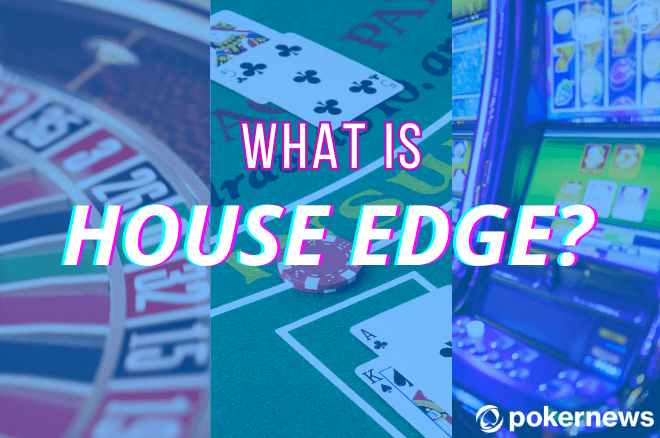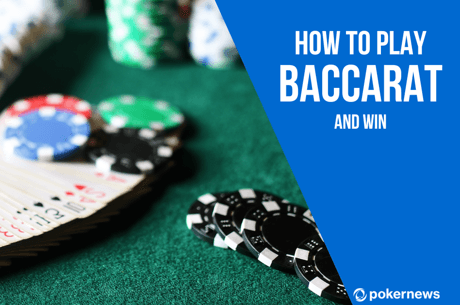What is House Edge? Casino House Edge Explained

Gambling in a casino can be a rewarding experience, but it's essential to understand the concept of the ‘house edge’ to make informed decisions.
In this article, we'll break down what the house edge is, how it's calculated, and why it matters to both players and casinos. We'll also explore its implications in various games and strategies to minimize it, where possible.
Let's dive in!
What is House Edge?
House Edge is the mathematical advantage that the casino holds over players in any given game. It represents the average gross profit the casino expects to make from each game, expressed as a percentage of the player's bet. Essentially, it’s the reason why casinos can stay in business and continue to operate profitably over the long term.
For instance, if a game has a house edge of 5%, this means that, on average, the casino expects to keep $5 for every $100 wagered on that game.
Origins and Concept of House Edge
The concept of house edge dates back to the origins of gambling itself. Casinos and gambling houses have always designed games to ensure they make a profit over time. The idea is simple: while players may win big on occasion, the odds are structured so that the house always wins in the long run.
Mathematically, the house edge is derived from the probabilities of the various outcomes in a game. It’s a crucial part of game design and influences how each game is played and what strategies players might use.
How is House Edge Calculated?
Calculating the house edge involves understanding the probabilities of different outcomes and the payouts for those outcomes. Here’s a simple example using American roulette:
- In American roulette, there are 38 possible outcomes (numbers 1-36, 0, and 00).
- A bet on either red or black pays 1 to 1 (or even money).
- The probability of winning this bet is 18 in 38 (18 red numbers and 18 black numbers), but the payout is only 1 times your bet.
The house edge is calculated by using the difference between the probability of winning and losing:
The probability of winning by betting on red/black = 18 in 38, which is also 47.37%.
The probability of losing is slightly higher at 20 in 38, as the house wins if the ball lands on either the single or double zero, as well as the opposite color to your bet. This works out as 52.63%.
The house edge of American roulette is, therefore, 52.63% - 47.37% = 5.26%
This means that over time, the casino expects to earn 5.26% of all bets on either red or black in American roulette. European roulette, which only uses one single zero pocket, has a lower house edge of 2.78% and is, therefore, a more advantageous game.
Which Casino Game Has the Lowest House Edge?
The house edge varies widely among different casino games. Let’s look at some popular games:
Table Games
- Blackjack: The house edge in blackjack is usually 0.61% for the standard American blackjack game, but can drop to 0.5% depending on the version being played.
- Roulette: In American roulette, the house edge is 5.26%, whereas European roulette (which has only one zero) has a lower house edge of 2.7%.
- Craps: The house edge varies depending on the bet. For example, the Pass Line bet has a house edge of 1.41%, while some proposition bets can have a house edge exceeding 10%.
Slot Machines and Online Slots
The house edge for slot machines varies greatly depending on the machine and casino, typically ranging from 2% to 10%. Progressive slots, which offer large jackpots, often have a higher house edge.
Other Games
- Baccarat: Betting on the banker has a house edge of 1.06%, while betting on the player has a house edge of 1.24%.
- Video Poker: Depending on the game and strategy, the house edge can be very low, sometimes less than 1%.
- Keno: This lottery-style game often has a very high house edge, sometimes as high as 25%.
Why House Edge Matters to Casino Players
Understanding the house edge is crucial for players because it affects their chances of winning in the long run. The higher the house edge, the more money the casino expects to make from players over time. For players, lower house edge games offer better odds of winning and preserving their bankroll.
Impact on Long-Term Winnings
The house edge directly impacts your long-term winnings. For example, in a game with a 5% house edge, you can expect to lose $5 for every $100 wagered over the long run. This knowledge can help you manage your expectations and budget accordingly.
Role in Bankroll Management
Knowing the house edge helps in effective bankroll management. By choosing games with lower house edges and employing optimal strategies, you can extend your playtime and increase your chances of winning.
Strategies to Minimize House Edge
While you can't eliminate the house edge, there are strategies you can use to minimize it:
Game Selection
Choose games with the lowest house edge, such as European roulette over American roulette or blackjack with favorable rules. Games like baccarat, where betting on the banker has a very low house edge, can also be a good choice.
Betting Strategies
While no betting strategy can change the house edge, some can help manage your bankroll more effectively. For example:
- Flat Betting: Bet the same amount on each hand or spin. This method helps preserve your bankroll and allows you to play longer.
- Martingale System: Double your bet after a loss, and return to your original bet after a win. This can be risky but aims to recover losses with one win.
- Paroli System: Increase your bet after a win and revert to your original bet after a loss. This strategy capitalizes on winning streaks.
Utilizing Bonuses and Promotions
Take advantage of casino bonuses and promotions, such as no deposit bonuses, free spins, and match bonuses which can extend your playtime without additional costs. However, always read the terms and conditions to understand wagering requirements and withdrawal limits.

Find the biggest and best casino bonuses and promotions, including welcome offers, no deposit bonuses, free spins and much more!
Play NowReal-World Examples and Scenarios for House Edge
To understand how the house edge works in practice, let’s look at a real-world example using blackjack:
Imagine you’re playing blackjack with a house edge of 0.5%. You start with a bankroll of $100 and bet $5 per hand. Over 10 hands, you’ve wagered a total of $50. With a house edge of 0.5%, the casino expects to keep $0.25 of that amount. While this might not seem like much, over thousands of hands, these small percentages add up, ensuring the casino’s profitability.
Now, consider a game of keno, where the house edge can be as high as 25%. If you wager the same $50, the casino expects to keep $12.50. This significant difference highlights why understanding the house edge is crucial for making informed gambling choices.
House Edge Mythbusting
There are many misconceptions about the house edge that can mislead players. Let’s debunk some of these myths:
Myth 1: You Can Beat the House Edge with a Betting System
While betting systems like Martingale or Paroli can help manage your bankroll, they don’t change the inherent house edge of the game. Over time, the statistical advantage will ensure that the house comes out on top.
Myth 2: The House Edge Changes with Winning and Losing Streaks
The house edge is a constant percentage based on the game’s rules and probabilities. Winning or losing streaks are part of the short-term variance, but they don’t alter the long-term house edge.
Myth 3: All Casino Games Have the Same House Edge
Different games have different house edges. It’s essential to understand the specifics of each game you play. For instance, the house edge in blackjack can be very low with optimal strategy, whereas some slot machines have a much higher edge.

Find out more about your favorite casino games including the rules, odds, bets and the best strategies!
Play NowUnderstanding the house edge is essential for any casino player. It helps you make informed decisions, manage your bankroll effectively, and choose games that offer better odds.
Remember, while the house always has an edge, knowing how it works allows you to enjoy your gambling experience more responsibly and possibly stretch your bankroll further.
Always Gamble Responsibly
Take a look at our guidance on Responsible Gambling and playing safe.
House Edge FAQs
Can the house edge be zero?
No, the house edge is never zero. Casinos design games to ensure they make a profit over time. However, some games have a very low house edge, especially with optimal play.
Does the house edge mean I will always lose?
Not necessarily. The house edge represents the average expected loss over the long term. In the short term, players can win big or lose more than expected due to variance.
How can I find the house edge for a specific game?
You can find information on the house edge for various games through casino guides, gambling strategy books, and reputable websites like [I][PokerNews[/I].









